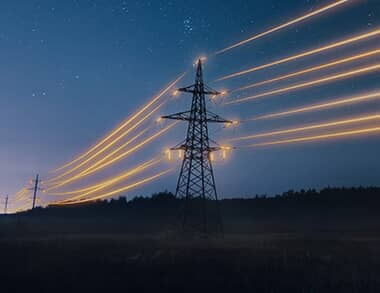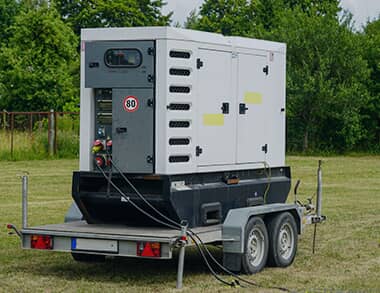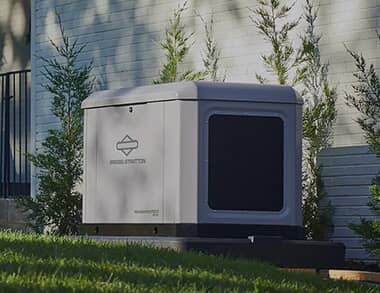Busting Generator Myths: Separating Fact from Fiction

Generators offer a valuable source of backup power, keeping your essential appliances running during outages. However, a surprising number of myths surround these essential machines, potentially leading to unsafe practices and underutilizing their potential. At Gen-Tech, a trusted provider of generator solutions, we're dedicated to empowering homeowners with accurate information. Let's debunk some common generator myths and equip you with the knowledge to maximize the benefits of your generator.
Myth #1: Size Doesn't Matter
Fact: Matching your generator's size to your power needs is crucial for safe and effective operation. A 10,000-watt generator might be sufficient to temporarily power a freezer and a few basic appliances. However, running complex equipment like computers, air conditioning, or medical devices for extended periods requires a significantly stronger generator. Consulting a power generation specialist ensures you choose a generator that meets your specific needs without risking overload.
Myth #2: Plugging Your Generator into a Home Outlet
Fact: This dangerous practice, known as backfeeding, is strictly prohibited everywhere. It involves using a double male adapter to connect the generator to a dryer outlet or another external plug. These adapters are illegal and pose a severe risk of electrical fire. Backfeeding can also damage your home's electrical system and potentially electrocute anyone working on the circuits. Always prioritize a dedicated transfer switch to connect your generator to your home's electrical system safely.
Myth #3: Running a Generator Inside a Detached Garage
Fact: Never operate a generator in any enclosed space, including a detached garage. While a roof might protect it from the elements, a generator requires well-ventilated outdoor placement. This prevents the dangerous build-up of carbon monoxide and carbon dioxide, colorless and odorless gases that can be fatal within minutes. Running a generator in an enclosed space, regardless of its size, poses a lethal risk to you, your family, and your pets.
Myth #4: Generators Increase Utility Bills
Fact: Generators have no impact on your utility bill. Your utility company charges you based on your actual or estimated power consumption throughout the year. Generators produce their own power, completely independent of the grid. In fact, utilizing a generator during outages can potentially lower your utility bill by reducing your reliance on grid-supplied electricity.
Myth #5: Generators are Unacceptably Loud
Fact: Quiet operation is a significant priority for modern generator manufacturers. Reduced noise models are readily available and surprisingly affordable. Although all engines produce some mechanical noise, proper placement of a quiet generator minimizes disturbance for your household and avoids noise complaints from neighbors.
Myth #6: One Size Fits All: Powering Your Entire House
Fact: While larger generators can power an entire house, the majority of residential users only require a generator to run essential appliances during temporary outages. Consulting a power generation specialist helps you determine the ideal generator size to meet your specific needs and budget.
Myth #7: Generators are Unnecessary Luxuries
Fact: Many underestimate the value of having a generator until faced with a prolonged power outage. Generators offer peace of mind, allowing you to maintain essential functions like food refrigeration, communication, and medical equipment used during emergencies.
At Gen-Tech, our team of experienced power generation specialists is here to help you make informed decisions. We offer a comprehensive selection of generators tailored to various needs and budgets. Contact us today to discuss your specific requirements and discover how a generator can enhance your preparedness and empower you during unexpected power outages.
Myth #1: Size Doesn't Matter
Fact: Matching your generator's size to your power needs is crucial for safe and effective operation. A 10,000-watt generator might be sufficient to temporarily power a freezer and a few basic appliances. However, running complex equipment like computers, air conditioning, or medical devices for extended periods requires a significantly stronger generator. Consulting a power generation specialist ensures you choose a generator that meets your specific needs without risking overload.
Myth #2: Plugging Your Generator into a Home Outlet
Fact: This dangerous practice, known as backfeeding, is strictly prohibited everywhere. It involves using a double male adapter to connect the generator to a dryer outlet or another external plug. These adapters are illegal and pose a severe risk of electrical fire. Backfeeding can also damage your home's electrical system and potentially electrocute anyone working on the circuits. Always prioritize a dedicated transfer switch to connect your generator to your home's electrical system safely.
Myth #3: Running a Generator Inside a Detached Garage
Fact: Never operate a generator in any enclosed space, including a detached garage. While a roof might protect it from the elements, a generator requires well-ventilated outdoor placement. This prevents the dangerous build-up of carbon monoxide and carbon dioxide, colorless and odorless gases that can be fatal within minutes. Running a generator in an enclosed space, regardless of its size, poses a lethal risk to you, your family, and your pets.
Myth #4: Generators Increase Utility Bills
Fact: Generators have no impact on your utility bill. Your utility company charges you based on your actual or estimated power consumption throughout the year. Generators produce their own power, completely independent of the grid. In fact, utilizing a generator during outages can potentially lower your utility bill by reducing your reliance on grid-supplied electricity.
Myth #5: Generators are Unacceptably Loud
Fact: Quiet operation is a significant priority for modern generator manufacturers. Reduced noise models are readily available and surprisingly affordable. Although all engines produce some mechanical noise, proper placement of a quiet generator minimizes disturbance for your household and avoids noise complaints from neighbors.
Myth #6: One Size Fits All: Powering Your Entire House
Fact: While larger generators can power an entire house, the majority of residential users only require a generator to run essential appliances during temporary outages. Consulting a power generation specialist helps you determine the ideal generator size to meet your specific needs and budget.
Myth #7: Generators are Unnecessary Luxuries
Fact: Many underestimate the value of having a generator until faced with a prolonged power outage. Generators offer peace of mind, allowing you to maintain essential functions like food refrigeration, communication, and medical equipment used during emergencies.
At Gen-Tech, our team of experienced power generation specialists is here to help you make informed decisions. We offer a comprehensive selection of generators tailored to various needs and budgets. Contact us today to discuss your specific requirements and discover how a generator can enhance your preparedness and empower you during unexpected power outages.
Topics:
From Insights to Power: Let’s Talk Solutions
Whether you need emergency power, maintenance, or expert guidance on your generator system, Gen-Tech has you covered. Our experienced team provides industry-leading service to keep your power running when it matters most. Call (800) 625-8324 to discuss your power generation needs today!
Contact Us













